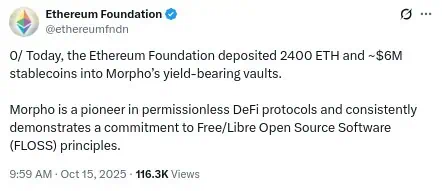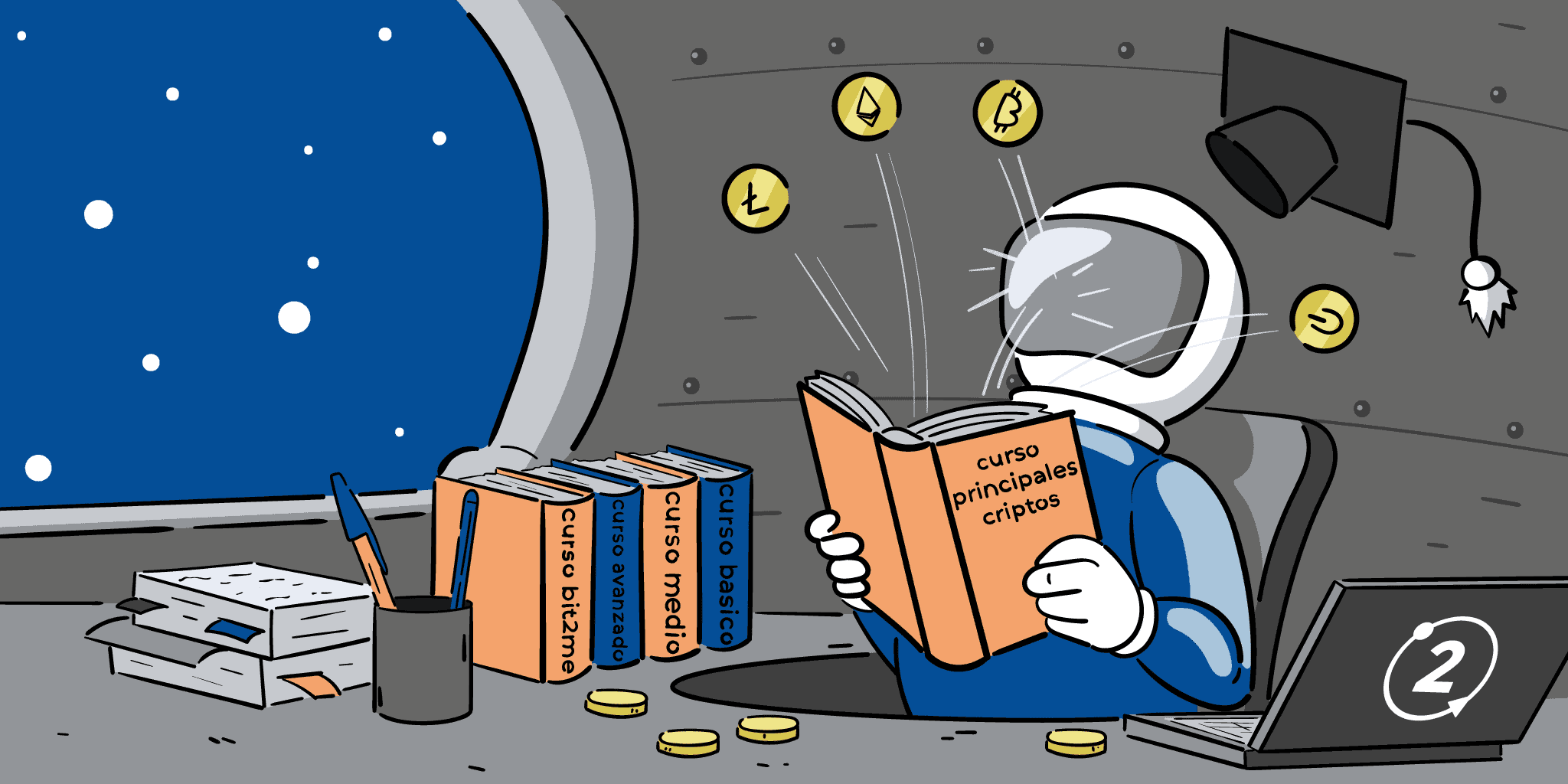
Ethereum is investing millions to empower the permissionless and open-source DeFi ecosystem, fostering a more free, transparent, and collaborative global economy.
The Ethereum Foundation has just revealed a significant investment in the Morpho protocol. The deposit includes 2.400 ETH and approximately $6 million in stablecoins, earmarked for the protocol's yield vaults. According to the Foundation, this action is part of its treasury policy and reflects its commitment to developing permissionless DeFi infrastructure based on principles of freedom and open-source software.
The news, published on the official Ethereum Foundation X account, details that Morpho represents an open and resilient architecture, aligned with the ecosystem's founding values. The investment not only seeks to generate returns, but also to strengthen open access and the capacity for innovation within the decentralized financial system.
Create your account and trade Ethereum with confidence at Bit2Me.Morpho drives open innovation in DeFi with open source software licenses
Morpho, a decentralized lending protocol, has positioned itself as one of the most committed to permissionless DeFi development. Its design allows any developer to fork, modify, or build upon its components without legal restrictions. This is possible thanks to its open source licenses, which guarantee open source code and interoperability between projects, something the Ethereum Foundation emphasized when it announced its recent investment.
Currently, the main modules of the protocol —MetaMorpho y Morpho Vault v2— are licensed under GPL 2.0. This license allows the use, modification, and redistribution of the software, provided that the same openness is maintained in derived versions. Furthermore, Morpho Blue (v1), which operates under BSL 1.1, will migrate to GPL 2.0 on January 1, 2026. This transition reinforces the protocol's commitment to the FLOSS (Free/Libre and Open Source Software) philosophy.

The Ethereum Foundation he highlighted These licenses foster a more resilient digital ecosystem. By allowing developers to build on existing protocols without permission, they reduce reliance on centralized actors and promote more distributed innovation. This vision aligns with Ethereum's principles since its inception: freedom, transparency, and censorship resistance.
Buy ETH and participate in the financial infrastructure of the futureThe defipunk framework that drives the Ethereum Foundation's investment strategy
The Ethereum Foundation's investment in Morpho responds to a broader strategy within the organization's treasury policy. As explained, this approach prioritizes allocating capital to protocols that embody the ecosystem's core values. The Foundation seeks to support projects that promote true decentralization, open source, and global accessibility.
The framework, presented as “defipunk”Morpho is not limited to financial criteria. It also evaluates the philosophical and technical impact of each protocol. Morpho meets these criteria by offering an infrastructure that can be audited, replicated, and improved by any member of the community. This technical openness translates into greater security, adaptability, and resilience against regulatory changes or external attacks.
The Ethereum Foundation has been clear in its intention to actively participate in the DeFi ecosystem. By depositing funds into open vaults like Morpho, it's not only seeking yield, but also contributing to the development of tools that can scale frictionlessly.

Main Cryptocurrencies Course
Basic levelBit2Me Academy brings you a new course in which you will learn everything you need about the most important cryptocurrencies that exist today.
Ethereum gives a vote of confidence to decentralization and free software
The Foundation's decision to invest in Morpho has implications beyond the protocol itself. It represents an institutional validation of permissionless DeFi models and open source software as pillars of the financial infrastructure of the future. In a context where many protocols opt for restrictive licenses or closed models, Ethereum's backing of Morpho sends a clear signal about the type of innovation it seeks to foster.
This movement could also influence other ecosystem players. Seeing a major foundation like Ethereum deposit liquidity into open vaults, other projects might reconsider their governance and licensing models. Technical openness is not only an ethical issue, but also a competitive advantage in terms of security, collaboration, and scalability.
In short, the investment in the Morpho protocol reinforces the idea that Ethereum is not only a technological platform, but also an active agent in building a more free financial system. By directing resources toward protocols that prioritize decentralization and permissionless access, the foundation is building a sustainable infrastructure capable of functioning without relying on intermediaries or imposing arbitrary restrictions.
Ethereum leads the way in decentralization. Access from Bit2Me.

